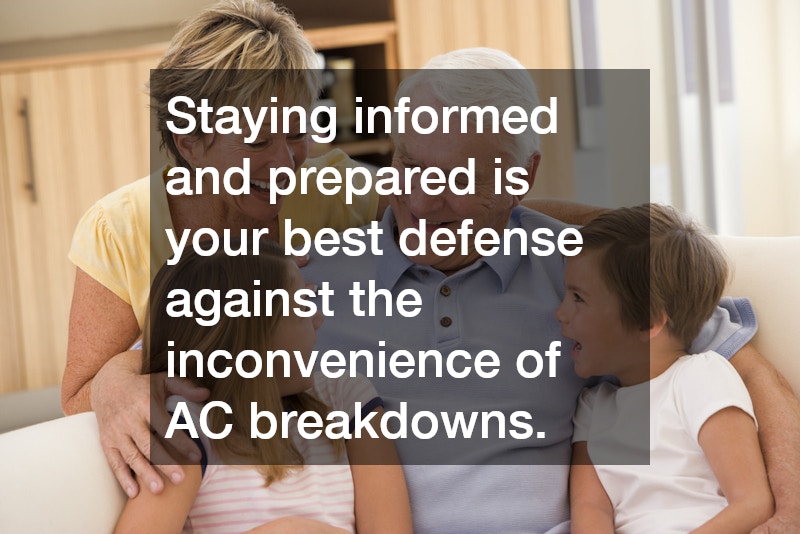When the mercury rises and your air conditioner ceases to function, it can quickly create an uncomfortable, or even unsafe, environment in your home. Having a reliable plan for emergency AC repair is crucial to restore comfort swiftly and efficiently. This article will provide you with actionable steps to take when faced with an unexpected air conditioning breakdown.
Signs of Imminent AC Failure
The first step in addressing an emergency AC repair situation is recognizing the signs that your unit is failing. Common indicators include strange noises coming from the unit, such as grinding or squealing sounds.
Another warning sign is reduced airflow or uneven cooling throughout your home, which often points to a clogged filter or failing compressor. Frequent cycling on and off of your air conditioner can also suggest an underlying issue that needs addressing. Additionally, if your AC unit is blowing warm air instead of cool, it’s crucial to address this immediately to prevent further deterioration.
Catching these signs early on can potentially save you from a complete system shutdown. Regular maintenance checks can help in spotting these issues before they escalate into emergency situations. Understanding the typical lifespan of your air conditioner and monitoring its performance as it ages is key. Typically, air conditioning units last between 10 to 15 years, depending on usage and maintenance. If your AC unit falls within this age range, being proactive about repairs and maintenance becomes even more critical.
If you notice water leaks around your unit, this is another integral sign that you might need emergency AC repair. Water drips or pooling water near your system could indicate a clogged condensate drain or other internal malfunction. Ignoring this can lead to water damage within your home, adding unnecessary expenses to the repair. Addressing these minor warning signs with prompt attention can keep your home environment safe and mitigate the risks of further complications. Ultimately, recognizing these signs is the first step in ensuring your cooling system is performing at its best.
Steps to Take When You Need Emergency AC Repair
Upon suspecting a failure in your air conditioning system, it’s vital to act promptly to mitigate discomfort and additional damage. First, check your thermostat settings to ensure they haven’t been altered by mistake. Set the temperature to a few degrees lower than the current room temperature to see if the system kicks into gear. Ensure that your AC’s circuit breakers are set properly and have not tripped. Simple resets can sometimes get your system back online without the need for professional intervention.
If after these initial checks your unit still does not work, it is time to contact a professional emergency AC repair service. When choosing a service provider, look for companies that offer 24/7 support, as air conditioners don’t follow a 9-to-5 schedule. Be sure to select a licensed and insured company to safeguard your home and investment. Providers with solid ratings and customer reviews tend to deliver quality service, so take the time to do quick research. Additionally, having a maintenance contract with a local service provider can often expedite emergency repairs.
Preventative Measures to Avoid Future Emergencies
To avoid future emergency AC repair situations, regular maintenance is crucial. Routine maintenance checks, ideally performed twice a year, can identify potential issues before they turn into major problems. During these check-ups, professionals will clean or replace filters, check refrigerant levels, inspect electrical components, and ensure all parts are functioning correctly. Such preventative maintenance can extend the life of your air conditioning unit and improve its efficiency, ultimately leading to lower utility bills.
Additionally, simple homeowner tasks, such as changing air filters every one to three months, can make a significant difference. Clogged or dirty filters restrict airflow, making the device work harder than necessary, which in turn can lead to overheating or system failure. Ensure that the area around your outdoor AC unit is clear of debris and vegetation to prevent hindering airflow and causing the system to overheat. Investing time in these small but effective measures can spare you the stress and cost of unexpected repairs.
Staying informed and prepared is your best defense against the inconvenience of AC breakdowns. Make sure to keep your system in peak condition and seek help at the first sign of trouble. By doing so, you ensure a comfortable living space for you and your family all season long.
.



